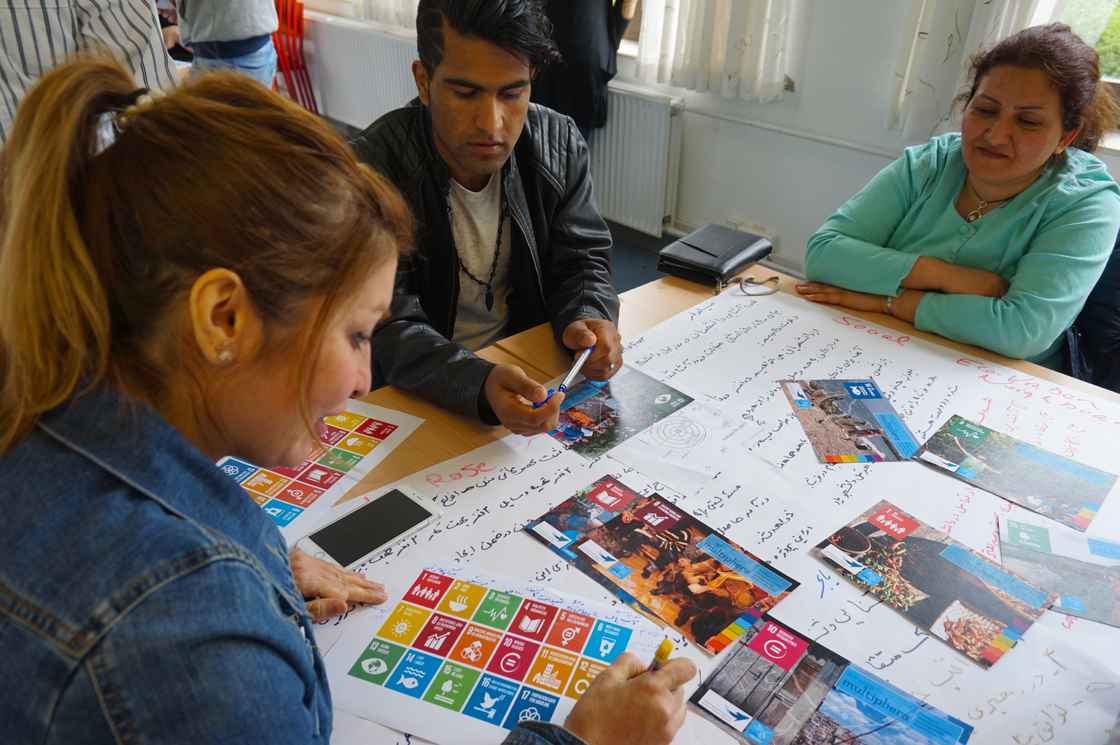SDGs Training of Multipliers - Face to Face
Learn the skills on how you can support and lead your community or organisation to innovatively achieve more sustainable projects and initiatives and contribute to reaching the Agenda 2030 and SDGs in your context and locality.
The world is at a critical juncture. While the United Nations Agenda 2030 provides a framework for sustainable development, global progress is way off track. It's time to act – to accelerate efforts, innovate, and move towards a regenerative future.
We are faced with the challenge of collectively re-designing the human presence on Earth.
SDGs Training for Multipliers is designed to build the capacity of facilitators and multipliers of the vitally important conversation about how to implement the 17 SDGs and their 169 targets at the local and regional scale in ways that are carefully adapted to the bio-cultural uniqueness of each location.
The SDGs Flashcards contain more than 200 questions relevant to the four dimensions of Gaia Education’s whole systems approach to sustainability (Social, Ecological, Economic and Worldview). Participants will explore these four dimensions of each of the 17 SDGs in question-focused small group conversations, to collaboratively identify actions and solutions aimed at implementing the global goals in ways that are relevant to their lives and their communities. This is an effective way of teaching SDGs and creating local community ownership of the SDGs.
Who is the training for?
Even though the Agenda 2030 and the SDGs have been integrated into many policies and regulations in many countries and regions (and also underpins something like the European Green Deal) around the world to a larger or lesser degree, as said progress is way off track, slow, insufficient, fragmented and often incremental - hence a call to action for becoming part of a more sustainable and socially just future and heading onto a path of regeneration.
Sustainability is not an end point in a journey; it is a community-centred process of learning how to live sustainably and regeneratively in a particular locality with its ecological and cultural uniqueness. If you want to teach SDGs, take part in SDGs education or facilitate such conversations where you live, this course is for you.

The Training for Multipliers serves a dual purpose
What is the dual purpose of this training for multipliers?
What are the main outcomes of participating in the training?
After completing the day-long training of multipliers you will:
Past Events
- Chiukhim, Kalimpong, India
3 June 2018
-
Chalamthang, Sikkim, India
1 June 2018
- Darjeeling, India
30 May 2018 - Makaiba, Kurseong, India
29 May 2018 - UNESCO Headquarters - Paris, France
14 May 2018
- Rio de Janeiro, Brazil
2 – 3 May 2018

